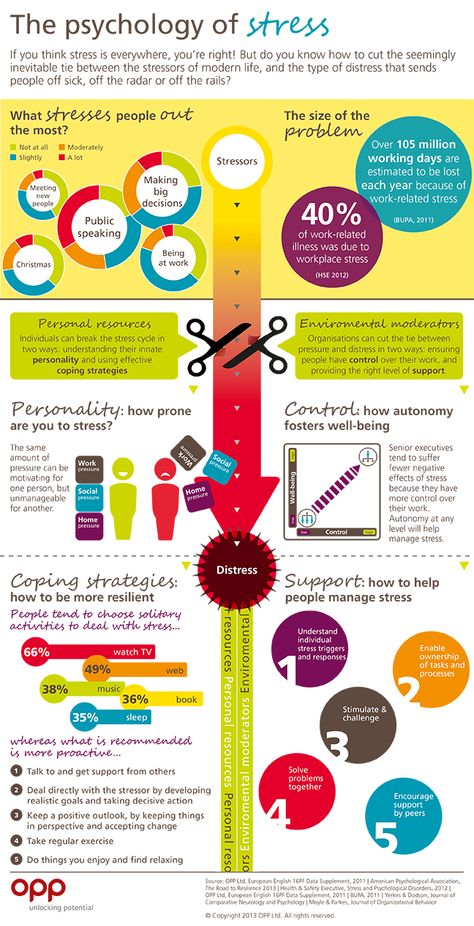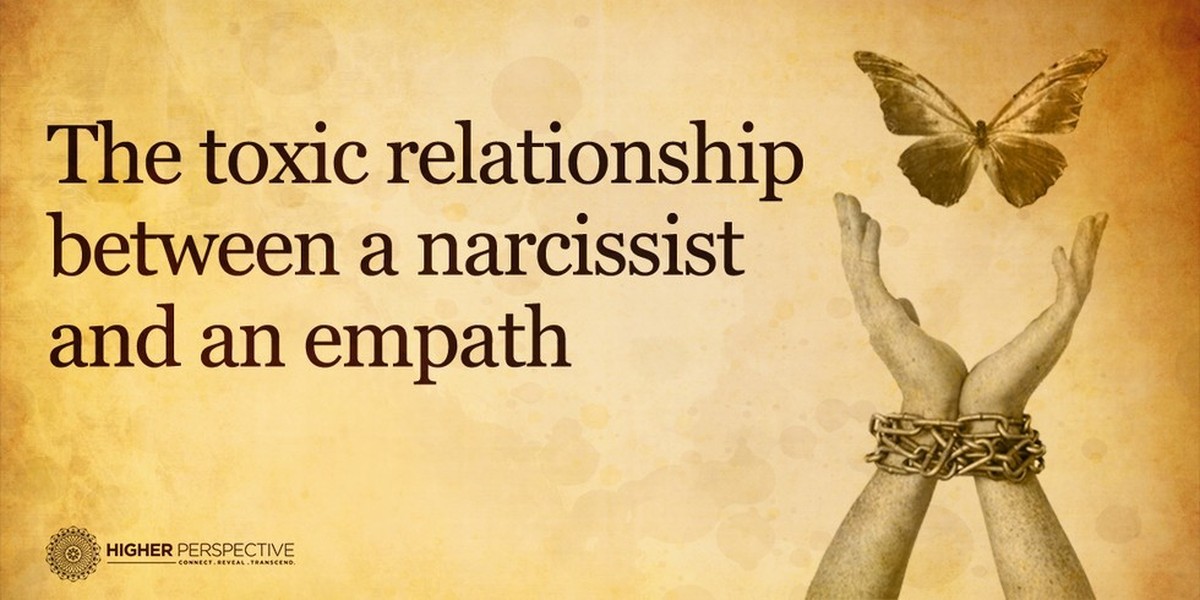How to not let negativity affect you
9 Ways to Stop Being Negative
The latest neuroscience suggests we can change our brains by transforming our minds and behavior. Specific mental exercises, when practiced systematically over time, can lead to enduring changes in the structure and function of our brains and, as a result, alter different facets of our Emotional Style.
Center Founder Richard Davidson shares nine ways to stop being negative, whether it's noticing the good in ourselves and others or noticing our environment and emotions.
1. Notice the Good
Write down one positive characteristic of yourself and one positive characteristic of someone you regularly interact with. Do this three times a day. Ideally, you'll write down a different trait each time, but if you're stuck on how "helpful" your office colleague is, that's okay.
2. Express Gratitude Regularly
Pay attention to times you say "thank you." When you do, look directly into the eyes of the person you are thanking and muster as much genuine gratitude as you can. Keep a journal and, at the end of each day, note the specific times you felt a genuine, even if brief, connection with another person during the act of expressing gratitude.
3. Compliment Other People Regularly
Keep an eye out for opportunities to do so, such as a job well done at work, a beautiful garden a neighbor created, or even a stranger's gorgeous coat. Look directly into the eyes of the person you are complimenting. In your journal, note the specific times you felt a genuine connection with someone you complimented.
4. Notice Your Breath
Mindfulness can weaken the chain of associations that keep us obsessing about and even wallowing in a setback, and can produce emotional balance. Mindfulness of breathing is an excellent place to start, since it is easy to focus on your breath during daily activities and it provides a clear anchor or support for mindfulness. The basic idea is to sit in a chair, relaxed but sitting up straight, and focus on your breathing: notice the sensations it triggers throughout your body, such as your abdomen moving in and out or the air passing the tip of your nose.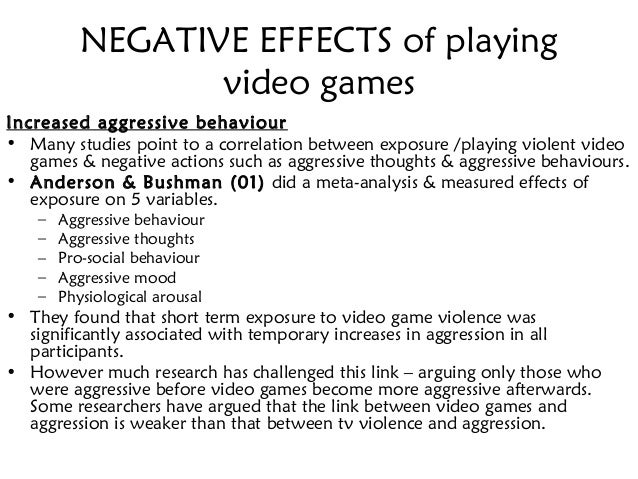 If you notice that you have become distracted, simply return your focus to your breathing. Try this 5 to 10 minutes a day, ideally twice a day.
If you notice that you have become distracted, simply return your focus to your breathing. Try this 5 to 10 minutes a day, ideally twice a day.
5. Cultivate Compassion
Practice simple compassion meditation, which can help you be less negative. It can provide perspective by reminding you that others suffer, too, and by focusing on relieving suffering in others you may well experience a sense of spontaneous joy. The basics of compassion meditation are to visualize someone who is suffering (a relative, friend or a generic person such as a starving child) and, each time you inhale, imagine that you are taking in that person's suffering. Imagine the person's pain flowing from your airways into your lungs, and conjure an image of his or her anguish departing her body.
6. Bounce Back from Challenges
Try re-arranging your environment to speed recovery from adversity. Leave the situation where a setback occurred: if you had a fight with your spouse, leave the combat zone and walk outside, or at least into another room.
7. Work with Negative Emotions
To decrease negative emotions, try a variant of "exposure therapy," which consists of progressively more direct exposure to cues that produce negative emotions but in a safe context and when you are relaxing. (You can use breathing exercises from hatha yoga to help you relax.) Then make a list of specific cues and behaviors that make you upset or produce negative emotions in a specific context. Then in a safe context, such as your home when you are relaxing on a weekend, gently and gradually bring to mind images associated with the events that produce negative emotions. Conjure up these images as vividly as possible. While imagining these events, perform the breathing exercise to help you relax. Continue to practice the breathing exercise until you feel comfortable and at ease despite imagining these negative events. Spend about 15 minutes several times per week on this.
8. Practice Mindfulness of the Body
This form of mindfulness meditation strengthens your awareness of sensations and trains you to observe them non-judgmentally.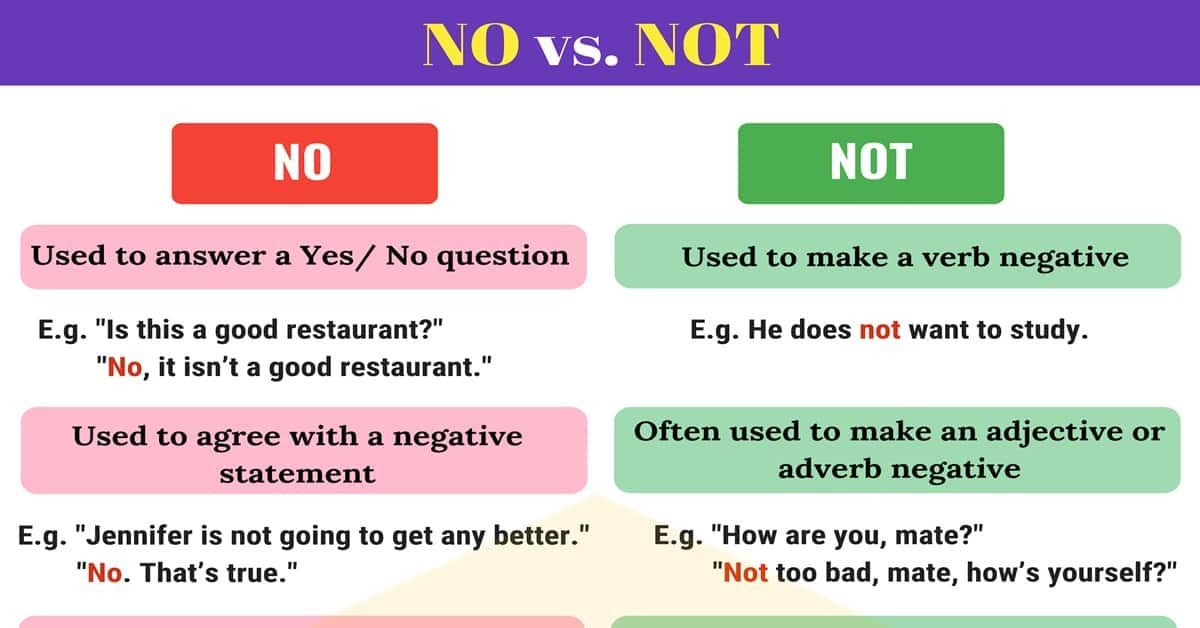 This component is important because when we judge our bodies as too tense we often add insult to injury and heap one negative emotion ("There must be something wrong with me if I can't relax!") on another. Mindfulness of the body can help break this negative chain of associations by training you to feel greater equanimity when observing your bodily signals of emotion and thereby reduce your negative emotions. To practice mindfulness of the body, sit upright and slowly move your attention systematically around your body, noticing the specific sensation in each such as tingling or pressure. Try this for 5 to 10 minutes, twice a day.
This component is important because when we judge our bodies as too tense we often add insult to injury and heap one negative emotion ("There must be something wrong with me if I can't relax!") on another. Mindfulness of the body can help break this negative chain of associations by training you to feel greater equanimity when observing your bodily signals of emotion and thereby reduce your negative emotions. To practice mindfulness of the body, sit upright and slowly move your attention systematically around your body, noticing the specific sensation in each such as tingling or pressure. Try this for 5 to 10 minutes, twice a day.
9. Explore Our Common Tendency to Be Happy and Avoid Suffering
Notice that many of our actions and those of others are intended to relieve suffering or bring happiness. (When you encounter a painful stimulus, you withdraw from it.) Recognizing that this is basic to all human beings provides a deep sense of interconnection with those around you and cultivates an appreciation that we all wish to be happy and to relieve suffering.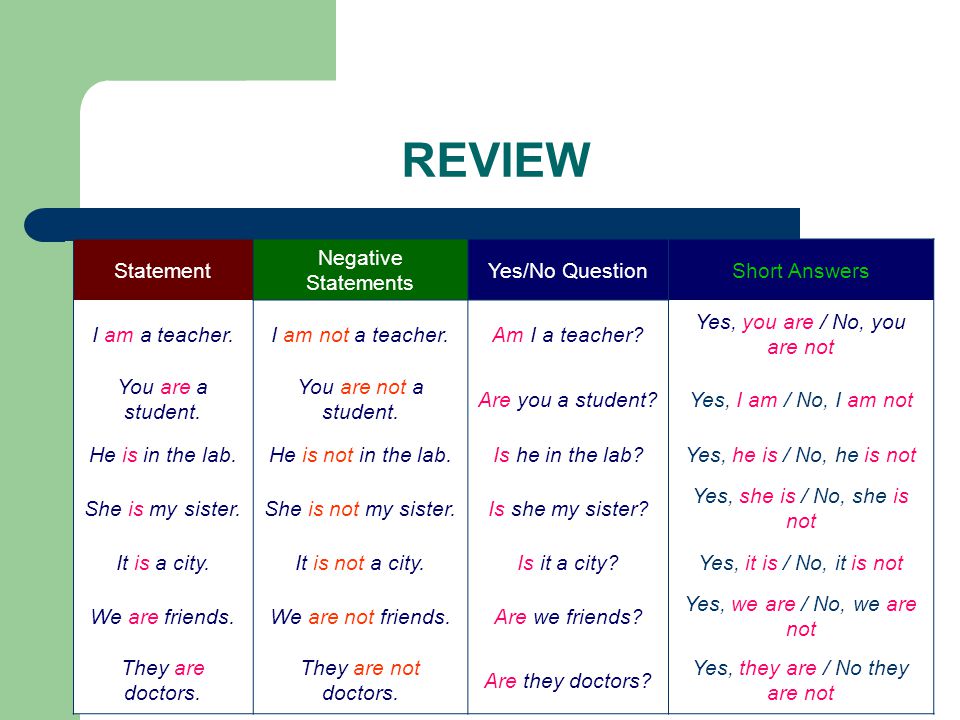 Try becoming aware of this any time you feel displeasure or pain. Notice your natural tendency to move toward happiness and well-being. And remind yourself that everyone is built the same way.
Try becoming aware of this any time you feel displeasure or pain. Notice your natural tendency to move toward happiness and well-being. And remind yourself that everyone is built the same way.
How to Protect Yourself from Others Negative Energy
How to Protect Yourself from Others Negative Energy- Conditions
- Featured
- Addictions
- Anxiety Disorder
- ADHD
- Bipolar Disorder
- Depression
- PTSD
- Schizophrenia
- Articles
- Adjustment Disorder
- Agoraphobia
- Borderline Personality Disorder
- Childhood ADHD
- Dissociative Identity Disorder
- Narcissistic Personality Disorder
- Narcolepsy
- Oppositional Defiant Disorder
- Panic Attack
- Postpartum Depression
- Schizoaffective Disorder
- Seasonal Affective Disorder
- Sex Addiction
- Specific Phobias
- Teenage Depression
- Trauma
- Featured
- Discover
- Wellness Topics
- Black Mental Health
- Grief
- Emotional Health
- Sex & Relationships
- Trauma
- Understanding Therapy
- Workplace Mental Health
- Original Series
- My Life with OCD
- Caregivers Chronicles
- Empathy at Work
- Sex, Love & All of the Above
- Parent Central
- Mindful Moment
- News & Events
- Mental Health News
- COVID-19
- Live Town Hall: Mental Health in Focus
- Podcasts
- Inside Mental Health
- Inside Schizophrenia
- Inside Bipolar
- Wellness Topics
- Quizzes
- Conditions
- ADHD Symptoms Quiz
- Anxiety Symptoms Quiz
- Autism Quiz: Family & Friends
- Autism Symptoms Quiz
- Bipolar Disorder Quiz
- Borderline Personality Test
- Childhood ADHD Quiz
- Depression Symptoms Quiz
- Eating Disorder Quiz
- Narcissim Symptoms Test
- OCD Symptoms Quiz
- Psychopathy Test
- PTSD Symptoms Quiz
- Schizophrenia Quiz
- Lifestyle
- Attachment Style Quiz
- Career Test
- Do I Need Therapy Quiz?
- Domestic Violence Screening Quiz
- Emotional Type Quiz
- Loneliness Quiz
- Parenting Style Quiz
- Personality Test
- Relationship Quiz
- Stress Test
- What's Your Sleep Like?
- Conditions
- Resources
- Treatment & Support
- Find Support
- Suicide Prevention
- Drugs & Medications
- Find a Therapist
- Treatment & Support
Medically reviewed by Scientific Advisory Board — By Dr. Sharie Stines, LPCC on March 25, 2020
Sharie Stines, LPCC on March 25, 2020
Since I so frequently write about narcissistic abuse, I know a common problem victims have is knowing how to cope with someones silent treatments, stone walling, brooding, pouting, outrage, judgementalism, negative implications, or other adverse energetic expressions.
Have you ever noticed how some people just enter a room and you can feel their energy? While some people have calming, soothing energy, others cause us to feel anxious and on edge.
This article addresses this problem. In a nutshell, what you will be doing is setting boundaries. The following list suggests some of the boundaries you can set in order to protect yourself and preserve your sanity.
- Keep your own power. One of the problems that happens when you are around a person with negative energy is that you can easily give that person permission to steal your joy, or otherwise impact your own state of mind in a negative way. Make the decision to hold on to yourself and your power and refuse to let the negative person own you.

- Stay positive. Think positive. Be hopeful. Be grateful. Make a decision to find the good in your life and dont allow another persons miserableness to define you or your day in any way. Imagine yourself as the separate person you are and remind yourself that you are only responsible for your life, not anyone elses.
- Ignore the perpetrator. This takes a concerted effort, as do all the suggestions in this article. Before you walk in to the situation with the person with negative energy, make the decision ahead of time that you will simply ignore him/her. Once you have made this decision it becomes easy. When you start falling prey to assuming you can have a conversation with the person remind yourself that you have already decided to ignore them.
- Give the silent treatment. This is similar to ignoring, yet a little more active than that. Usually it is considered rude to ignore other people by giving them the silent treatment.
 However, in light of coping with a difficult person, studies have shown that giving someone the silent treatment can be an easier way to interact with a difficult person than having an actual conversation. “It may be used as a way to offset feelings of fatigue or depletion associated with the expectation of an unpleasant interaction.” (The Body ODD, 2013)”Findings suggest that the silent treatment may be used as a strategy for conserving mental resources that would otherwise be exhausted by interacting with someone who is inherently aversive to be around.” (The Body ODD, 2013).
However, in light of coping with a difficult person, studies have shown that giving someone the silent treatment can be an easier way to interact with a difficult person than having an actual conversation. “It may be used as a way to offset feelings of fatigue or depletion associated with the expectation of an unpleasant interaction.” (The Body ODD, 2013)”Findings suggest that the silent treatment may be used as a strategy for conserving mental resources that would otherwise be exhausted by interacting with someone who is inherently aversive to be around.” (The Body ODD, 2013). - Move to a different space. Because it is so often easy to absorb another persons energy, I find it helpful to remove myself from the negative persons energy field. If you are having difficulties remaining objective and non-affected by the offending person, simply move away from their atmosphere. Maybe you are an empath and you tend to absorb other peoples emotions rather easily.
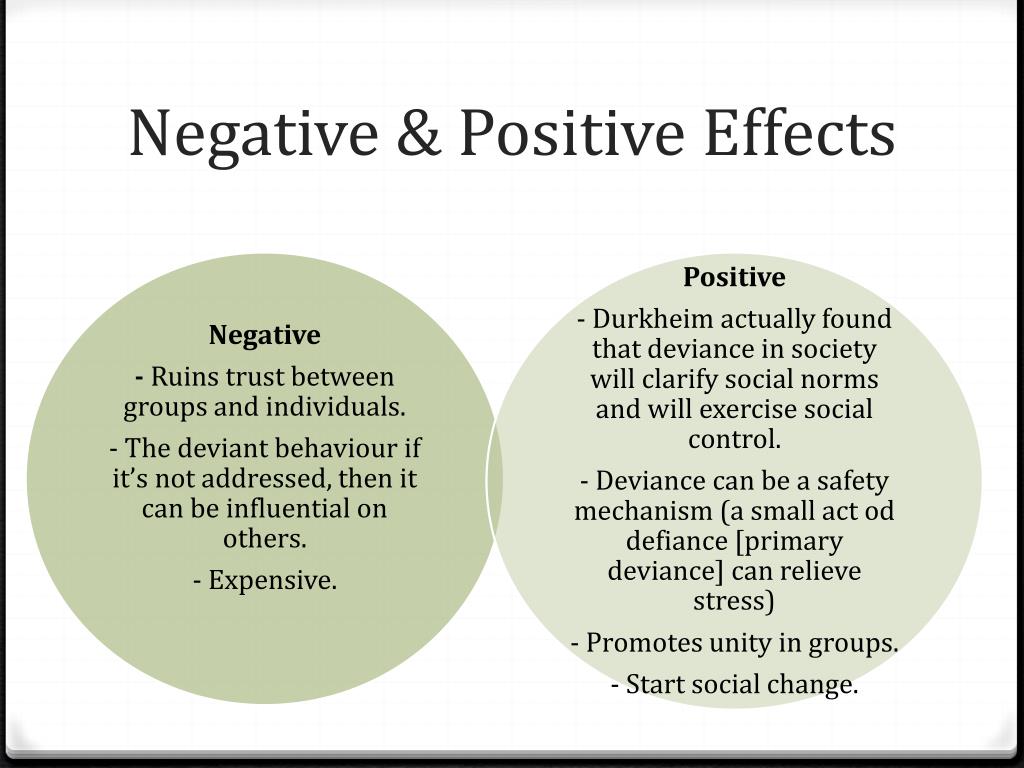 Its good for you to realize this and protect yourself using any means necessary.
Its good for you to realize this and protect yourself using any means necessary. - Look away from the person. It is much easier to stay in your own space and protect yourself from negative people by pretending theyre not there. Its easier to do this by not looking at the person. Remind yourself to look away if you catch yourself noticing that person.
- Use Imagery. Imagine yourself surrounded by a protective shield. Picture yourself with an aura of positive energy surrounding you and emanating outwards from you. Use your imagination to picture how you want to feel when youre in the presence of a person who tends to drain the positivity right out of you.This process of imagery works because it is a form of practice. As with the concept of practice makes perfect, practicing in your mind how you want to see yourself, changes the way your mind thinks.
- Give the negative energy back.If you find yourself absorbing the negativity despite your best efforts use imagery as well to visualize yourself removing the negativity from yourself and placing it back on the other person where it belongs.
 To do this, stop and think for a minute how you feel and where you feel the negative emotions. Once you establish this imagery, picture yourself letting the negativity flow out of and off of you. See it being released into the atmosphere and flowing back to the source.
To do this, stop and think for a minute how you feel and where you feel the negative emotions. Once you establish this imagery, picture yourself letting the negativity flow out of and off of you. See it being released into the atmosphere and flowing back to the source.
The bottom line is, your life is your responsibility. Once you can concretely come to that conclusion you can realize that you have choices and personal power to decide how others will affect you. If you dont like the way you feel around certain people then it is 100 percent up to you to take care of yourself when youre around them. The way they are may trigger you for some reason. Whether they are intentionally antagonizing you or not, it is your responsibility to take care of your own emotional needs.
Reference:
The Body Odd. (FEB 27 2013). How to deal with jerks: Give em the silent treatment. By: NBC News. Retrieved from: https://www.nbcnews.com/healthmain/how-deal-jerks-give-em-silent-treatment-1C8580863
Last medically reviewed on March 25, 2020
FEEDBACK:
Medically reviewed by Scientific Advisory Board — By Dr. Sharie Stines, LPCC on March 25, 2020
Sharie Stines, LPCC on March 25, 2020
Read this next
What Is Unconditional Love and Is It Always a Good Thing?
Unconditional love means no strings attached, but that doesn't mean there shouldn't be any boundaries.
READ MORE
Social Awkwardness: Signs and How to Overcome It
Most of us experience social awkwardness sometimes — but when does awkwardness become social anxiety? We look at the signs and offer coping tips.
READ MORE
How to Live Without Your Partner After a Breakup
After a breakup, you may find it hard to live without your partner. But revamping your space and spending time with close friends may help cope and…
READ MORE
What to Do When 'I’m Sorry' Doesn’t Work
Perhaps you feel wronged and bothered that they still haven't apologized.
 Maybe they never will. Here's how to cope.
Maybe they never will. Here's how to cope.READ MORE
Healing from Toxic Shame
Intense shame that keeps coming up is different from regular shame and can become toxic. Here's how to cope.
READ MORE
How to Deal with an Angry Person
Medically reviewed by Kendra Kubala, PsyD
When faced with someone else's anger, it's natural to feel anxious and uncomfortable. But there are ways to deescalate the situation.
READ MORE
ASMR: Why Certain Sounds Soothe Your Mind
Medically reviewed by Karin Gepp, PsyD
We're bending an ear to what experts say about ASMR (autonomous sensory meridian response) sounds and your mental health. Plus, four ASMR YouTubers…
READ MORE
What Resilience Is and Isn’t
Medically reviewed by N.
 Simay Gökbayrak, PhD
Simay Gökbayrak, PhDResiliency can be seen both positively and negatively. Learn about how resilience is defined, how to build it, and when it may be harmful.
READ MORE
What to Say (and Not Say) to Someone Who’s Sick: 7 Tips
Medically reviewed by Joslyn Jelinek, LCSW
The person may have become ill in a way that will impact their routine and activities. Here's what to say and do to help and offer comfort.
READ MORE
8 Reasons You’re Feeling More Emotional Lately
Medically reviewed by Karin Gepp, PsyD
You’re not yourself. You feel off. Here’s a clinical explanation for why you may feel more emotional than usual.
READ MORE
7 ways to protect yourself from negativity
October 19, 2016 Relationship
It's hard to stay positive when you're surrounded by negative people.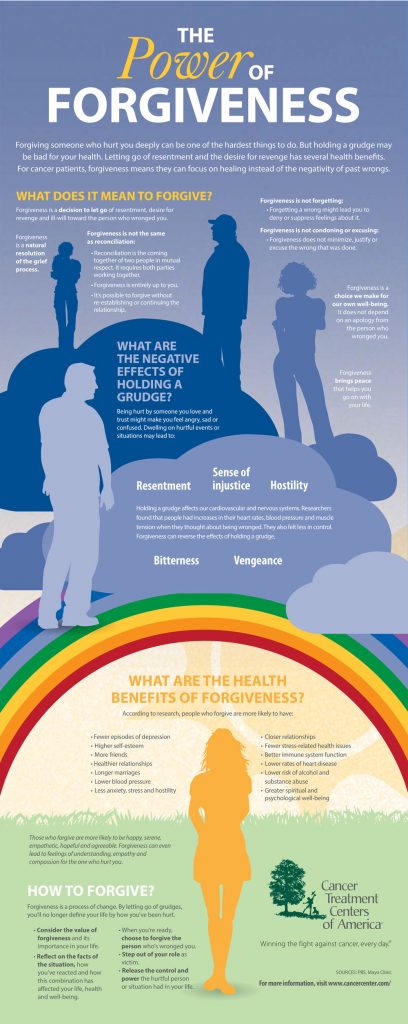 These tips will help you maintain your composure and peace of mind.
These tips will help you maintain your composure and peace of mind.
Do you have any acquaintances or colleagues who are constantly dissatisfied with everything? They complain about life, about work, about friends and family members. They are not satisfied with the state of their health, the weather, the roads and Jared Leto's new hair color. You can list indefinitely.
If you've ever talked to such a person, you've probably experienced first hand how difficult it is to maintain a positive attitude and not become discouraged after a conversation with him. But such people are not so rare. And it is not always possible to avoid interacting with them.
To stop a negative person from draining your energy, try following these guidelines.
1. Set boundaries and guard them
It is very hard to deal with people who are stuck in their problems and unable to focus on solving them. They want others around them to give them moral support 24 hours a day and share their pessimism. You do not interrupt their endless complaints because you are afraid to appear rude and callous. However, it is one thing to provide emotional support, and another thing to get stuck up to your neck in the swamp of their negativity.
You do not interrupt their endless complaints because you are afraid to appear rude and callous. However, it is one thing to provide emotional support, and another thing to get stuck up to your neck in the swamp of their negativity.
In order not to fall into this swamp, set clear boundaries and keep a distance between yourself and the source of negativity.
Just think, would you sit next to a person who smokes one cigarette after another all day and enjoy the smoke? Hardly. So step back and get some fresh air. In all senses.
If in the near future you cannot protect yourself from the company of an annoyingly negative interlocutor, try to neutralize him by asking how he is going to solve the problem that he constantly complains about. Often this is enough for the interlocutor to close the topic or turn the conversation into a more constructive direction. At least for a while.
2. Don't let the other person piss you off
Emotional reaction shows that we cannot assess the situation objectively. Emotions can take over you for just a couple of seconds, or they can completely take control of your behavior. If a person who radiates negativity managed to anger or unbalance you, it means that you were unable to maintain a sober view of the situation.
Emotions can take over you for just a couple of seconds, or they can completely take control of your behavior. If a person who radiates negativity managed to anger or unbalance you, it means that you were unable to maintain a sober view of the situation.
When you encounter negative behavior that offends you, don't return insult for insult. Maintain dignity and do not stoop to the level of your interlocutor. Try to see to the root.
3. Offer to switch to lighter topics
Some people get negative only about their painful topics. To you, these topics may seem rather innocuous. For example, if someone is dissatisfied with his job, he will mention it on any occasion, out of place and out of place, and constantly complain about it. If you try to insert your positive comment, you will be thrown out with an even greater dose of negativity.
Do not try to change the interlocutor's attitude to a topic that is painful for him. Perhaps his problems with this topic are much deeper than they seem. The best way out is to suggest changing the subject to a lighter and more positive one. Share funny stories, good memories, anything that can distract your interlocutor from obsessive thoughts.
The best way out is to suggest changing the subject to a lighter and more positive one. Share funny stories, good memories, anything that can distract your interlocutor from obsessive thoughts.
4. Focus not on the problem, but on its solution
What you focus on affects your emotional state. If you focus on the problems you are facing, you only increase the negative impact of stressors. If you are looking for a way to improve the current situation, then you feel satisfied, which causes positive emotions and helps to overcome anxiety.
The same principle should be used when dealing with negative people. Just stop thinking about how annoying the other person is. Instead, ask yourself how you can influence this person's behavior so that it doesn't make you uncomfortable. This way you will stop worrying and be able to take control of the situation.
5. Distract from the opinions of others
Successful people tend to think internally. This means that according to the ideas of such people, their well-being depends only on themselves.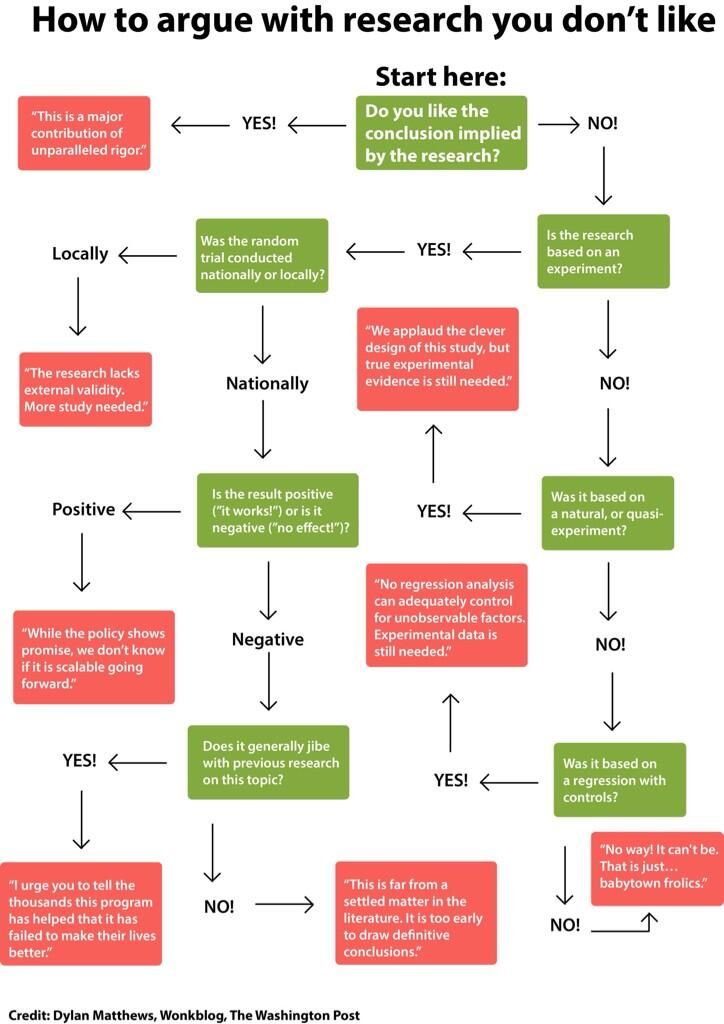 Psychologists call this personality trait an internal locus of control. Negative people usually shift the responsibility for their lives to others and blame others for everything that happens to them or does not happen to them. They provide an example of an external locus of control.
Psychologists call this personality trait an internal locus of control. Negative people usually shift the responsibility for their lives to others and blame others for everything that happens to them or does not happen to them. They provide an example of an external locus of control.
If your self-esteem and satisfaction depend on the opinions of other people, you cannot be happy without someone else's approval. When emotionally strong people are confident that they are doing something right, they don't let superficial judgments and snarky comments from others lead them astray.
You are not as good as you are praised when you win. But not as bad as you are condemned when you lose. What matters is what you learn and how you use what you learn.
6. Don't try to fix other people
You can help some people by showing them an example. And for some you can't. Do not let energy vampires and manipulators disturb your inner balance. You cannot control what you cannot control.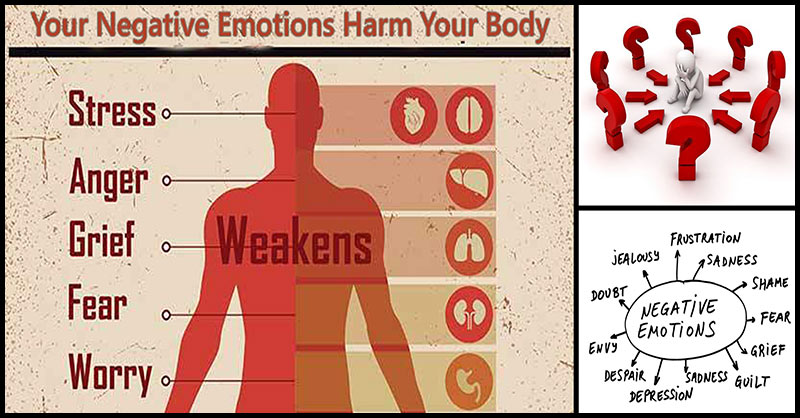
If there is something you don't like about the behavior of the person you love, and you hope that over time it will change, then it is better to leave these hopes. The likelihood that he will remain the same as he was is too great. If you really want to change something, be honest with your loved one and lay all your cards on the table. Let your significant other know how you feel and why you feel the way you do.
However, in most cases you should not even try to change the other person. Accept him for who he is, or leave his life.
It might sound harsh, but it's the best. When you try to change a person, in response, he often begins to resist and you get the opposite effect. But if you leave these attempts and just support this person, giving him the freedom to independently determine what he wants to be, gradually he can change himself. And change amazingly. Perhaps your attitude towards this person will change.
7. Take care of yourself
Do not forget about yourself simply because others do the same.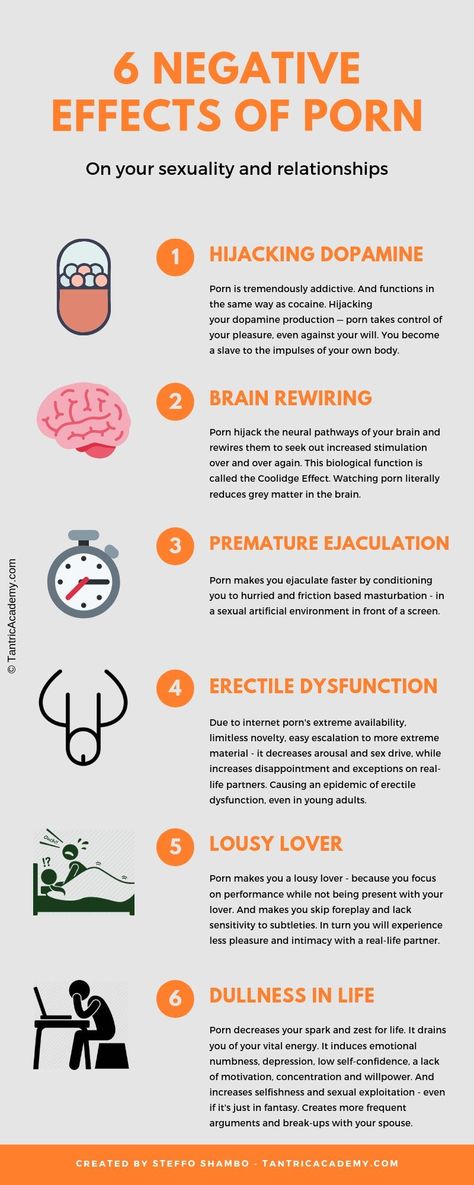 If you are forced to work or live under the same roof with a source of constant negativity, make sure you have enough time to rest and restore internal resources.
If you are forced to work or live under the same roof with a source of constant negativity, make sure you have enough time to rest and restore internal resources.
It is quite difficult to always maintain the correct unemotional perception of the situation. Negative people can keep you up at night wondering, “What am I doing wrong?”, “Am I really that bad that they talk to me like that?”, “Maybe I offended him in some way?”, "I can't believe she did this to me!" and so on.
You can worry for weeks, months. Even for years. Unfortunately, sometimes this is the goal of a negative person. He seeks to piss you off and bring you down to his level of negative thinking. Therefore, take care of yourself so that in the future you can calmly repel the attacks of such emotional vampires.
And finally…
No matter how hard it is to admit it, but sometimes you yourself are the source of negativity. At times, your inner critic brings you much more experience than those around you. Try to agree with yourself and turn off this critic at least until the end of the day. This simple tip will help you feel much better.
Try to agree with yourself and turn off this critic at least until the end of the day. This simple tip will help you feel much better.
Negative thoughts will not help you cope with problems and will not make you a better person. Remember this.
How to abstract from negative emotions?
Skip to content
|
It is difficult to always be calm and balanced, irritation, negative emotions periodically appear, the mood deteriorates. The most popular advice is to simply ignore the negative and focus on the positive. But how can this be abstracted? What does this mean and how to learn it? - let's figure it out in this article.
What does abstract mean?
The concept of "abstraction" means a distraction from something, that is, a change in the type of activity. In psychology, abstraction is understood as a change in thinking, a change in the view of the situation. A person, as it were, re-looks at the problem only from a different angle. We are accustomed to automatically generalize what we see, what happened and reduce it to a common denominator. But decisions sometimes require you to pause and change the record. Step aside from violent reactions and emotions, exhale and let your nervous system rest in order to return with a cold mind to the situation.
A person, as it were, re-looks at the problem only from a different angle. We are accustomed to automatically generalize what we see, what happened and reduce it to a common denominator. But decisions sometimes require you to pause and change the record. Step aside from violent reactions and emotions, exhale and let your nervous system rest in order to return with a cold mind to the situation.
How to abstract from the negative?
There is no magic pill for a bad mood. It is necessary to carry out constant work on yourself, your emotional intelligence, in order to learn how to manage emotions. Therefore, part of the advice will concern the internal study of stable supports, as a result of which it will become much easier for you to abstract from negative emotions. Some of the recommendations were taken from the free online course "Emotional Intelligence", which can be viewed at any convenient time.
- Develop mindfulness. Negative emotions can overwhelm you so much that you cannot go beyond them.
 Therefore, it is important to clearly report on your actions and perceive what is happening as objectively as possible. Then it will be easier to suppress negative emotions.
Therefore, it is important to clearly report on your actions and perceive what is happening as objectively as possible. Then it will be easier to suppress negative emotions. - Accept life. Life is absurd, nothing and no one is perfect in it. Therefore, do not take many problems to heart, because in life it is impossible to control everything. Sometimes we cannot influence the circumstances, so just accept it and act.
- Think philosophically. It means to perceive life not only through the prism of white and black, but also to understand that there are other colors in life. You can't just think in terms of right/wrong. Analyze important points, draw conclusions and not make drastic decisions. Everything bad that happens to you is just an experience that needs to be worked through and let go.
- Be imperfect. Many people experience a lot of their failures, blaming themselves for many years. Constantly thinking about past mistakes only spoils the mood and does not allow the present to enter your life.
